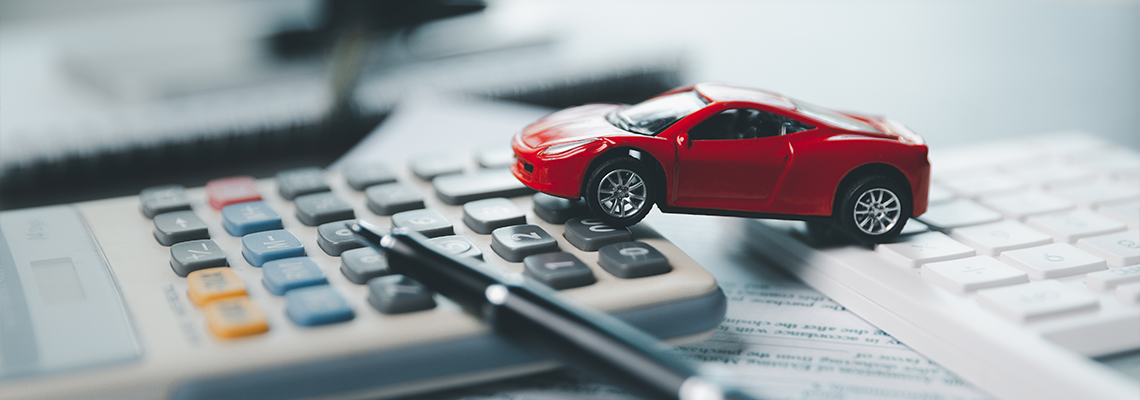
What to Do When an Accident Happens in a Rental Car
Being involved in a car accident can be stressful, and it can feel even more challenging when your vehicle is a rental. Whether you’re unfamiliar with the rental company’s collision coverage or worried about personal injury claims, it's important to take prompt, informed action to position yourself to handle the aftermath confidently.
Even a minor fender-bender can trigger confusing questions about insurance, liability, and repair costs. Knowing the right legal steps and insurance details from the moment of impact helps protect your rights and your wallet. At The Eskesen Law Firm in New York, I strive to advise drivers on what to do when an accident happens in a rental car.
An Overview of Rental Car Insurance Coverage
When an accident happens in a rental car, insurance coverage may stem from multiple sources. In New York, this could include:
Your personal auto policy: This often extends to rental vehicles, but deductibles and exclusions can differ.
The rental company’s collision damage waiver (CDW): CDWs usually waive damage fees in exchange for a daily charge, yet they may not cover all costs, such as loss-of-use or administrative fees.
Credit-card insurance benefits: Credit-card rental protections vary by issuer and often require you to decline the rental company’s CDW to qualify.
It's essential to review your auto policy declarations page and credit-card benefits guide before picking up the keys, so you know which coverage applies and where gaps might exist.
Steps to Take After an Accident in a Rental Car
When an accident happens in a rental car, your first priority should be your safety and the safety of the other parties involved. To preserve crucial evidence and ensure compliance with all laws and regulations, you should take the following steps.
Check for injuries: Make sure everyone’s safe and call emergency services for medical assistance if needed.
Move to a safe spot: If the vehicle is drivable, pull over to the side of the road to avoid blocking traffic or causing further collisions.
Call the police: Contact local law enforcement and have them file a police report. A police report creates an official record of the accident, which insurers often require.
Take photos: Document the damage to all vehicles, license plates, road conditions, and any visible injuries before anything’s moved.
Report the accident to the rental company: Notify the rental company immediately according to their accident procedures. Rental agreements typically require prompt reporting, or you could face penalties or invalidated coverage.
Contact your insurance company: File a claim with your insurance company if your policy covers rentals. Give accurate details about the crash and confirm which damages and medical costs your policy will address.
Completing these steps promptly not only protects your well-being but also lays the groundwork for both injury and property damage claims. Insurers look for comprehensive scene documentation, and the courts give weight to actions taken immediately after a crash.
Understand Your Rental Agreement Terms
Before signing a rental car agreement, understand which clauses define your responsibilities and potential liabilities in case of an accident. The key provisions in rental agreements determine who pays for damages, how far you can drive, and what condition the vehicle must be in when returned. Some key terms you should look out for include:
Liability clauses: These specify whether you’re responsible for damage costs beyond what insurance or waivers cover.
Mileage limits: These set the maximum number of miles you can drive without incurring extra per-mile charges.
Return conditions: These detail fuel levels, cleanliness, and the mechanical condition required to avoid fees.
Additional driver fees: These identify any additional charges for adding authorized drivers to the contract.
Review these terms carefully so you can anticipate costs and avoid surprises after an accident. If any provision seems unclear or overly punitive, ask the rental agent to clarify or amend the agreement before you drive off.
Determining Liability After a Rental Car Accident
Establishing who’s at fault following a rental car accident is vital to securing coverage and compensation without unnecessary disputes. To build a clear liability case, you will need to gather the following evidence:
Review the police report: The officer’s findings on fault, citations, and contributing factors carry significant weight with insurance companies.
Gather witness statements: Independent accounts help corroborate your version of events and dispute biased reports.
Inspect accident scene evidence: Photos of skid marks, vehicle positions, and traffic control devices clarify who had the right of way.
Consider comparative negligence: New York’s shared-fault rules may reduce your recovery if you bear partial responsibility.
A well-documented liability analysis lets you negotiate both property damage repairs and personal injury settlements more effectively. With clear evidence of fault, you can minimize the risk of protracted disputes and make sure insurers address your claims fairly.
Loss-of-Use Fees and Additional Rental Charges
Rental companies often bill for “loss of use” when their vehicle is in the shop for repairs after a crash, claiming compensation for the time it can’t be rented. They may also add administrative fees, GPS replacement costs, and cleaning surcharges. These expenses can significantly increase your out-of-pocket liability.
You can often dispute excessive charges by requesting detailed invoices that show how fees were calculated and comparing them to fair market rental rates. Providing evidence of actual rental income lost—rather than accepting flat per-day rates—helps you negotiate reductions or denials of unwarranted fees.
Damage Waivers and Security Deposits
Collision damage waivers (CDWs) and loss damage waivers (LDWs) offer protection by shifting repair costs back to the rental company when you pay an upfront fee. However, they often exclude fees like loss of use or administrative charges, and they may require you to decline your insurance to qualify.
Security deposits secure the rental company against unpaid charges. After an accident, inspect your receipt and the company’s damage report before authorizing any deposit deductions. Promptly contest any unjust charges in writing and provide supporting documents, such as photos, repair estimates, and your insurance confirmation, to recover withheld funds.
Contact Me at The Eskesen Law Firm Today
If you've been involved in a car accident in a rental car, I can help. At The Eskesen Law Firm, I will guide you through insurance claims, questions about liability, and how you can pursue compensation for your injuries.
Located in New York, New York, I serve clients throughout New York County, Kings County, Queens County, Bronx County, Richmond County, Westchester County, and Rockland County. Contact me today to schedule a free consultation.
